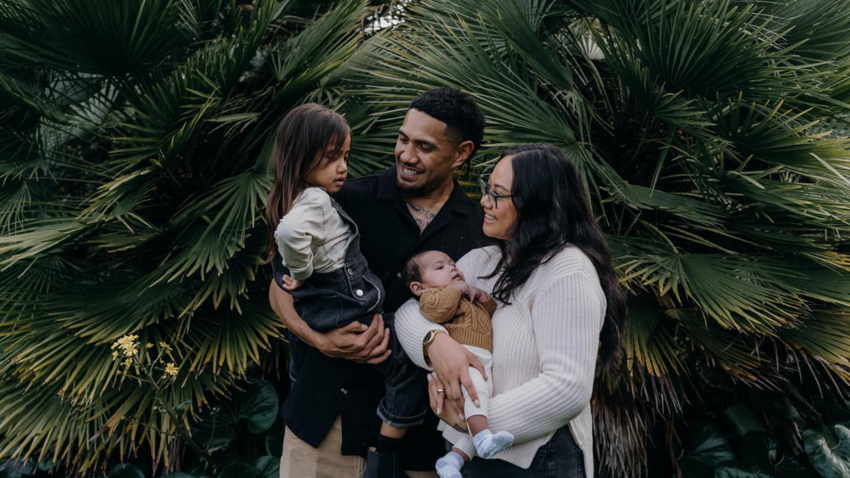Built for This: A Pacific Mum’s Autism Story

I recently listened to a podcast that described parenting a neurodiverse child — or any child with a disability — as “Elite Sport Level Parenting.” As a Pacific mother raising a four-year-old on the spectrum, I can confirm: that description is spot on.
For the select few of us who have been blessed with neurodiverse kids, everything looks different. Birthdays. School performances. Family vacations. Even a quick trip to Pak’nSave. All of it takes more thought, more planning, more care — more mental load. Because our children move through a world that wasn’t designed with them in mind. But that’s okay. Because my son has parents who were made just for him.
That’s a sentiment echoed by many Pacific parents in Rochelle Nafatali’s thesis, “E lē Ma’i, o le Malosi!” (He’s Not Sick, He’s Strong!) — the first Pacific-led research project to explore the experiences of Pacific families raising autistic children in Aotearoa. Through talanoa and Pacific research frameworks, the voices of 15 parents revealed a collective truth: we are navigating uncharted waters, drawing strength from our culture, our families, and our faith.

The thesis speaks of the journey Pacific parents go through — a journey Nafatali calls “Diasporic Adaptation to Neurodiversity.” It’s about more than understanding autism. It’s about unlearning assumptions and reshaping how we show up for our kids — while still holding tight to the values that raised us: alofa (love), fa’aaloalo (respect), tautua (service), and vā fealoa’i (relational space).
In my own journey, that has meant learning to read between the lines when my son struggles to communicate with words. It’s meant finding ways to educate my own family with both alofa and fa’aaloalo. I’m blessed to have a family who love and accept my boy unconditionally — but for many Pacific families, that’s not the case.

Sometimes it feels like we’re fighting parts of our own culture to advocate for our children. Because honestly? There’s no culturally appropriate way to say, “Don’t treat my son that way or you’ll never see him again.” Sometimes you have to choose alofa and fa’aaloalo for yourself and your child — even if it means stepping away from others. And that’s 100% okay.
Yet even in the hardest moments, our culture carries us. The thesis describes relational resilience — the way Pacific families draw strength from our relationships, shared experiences, and cultural practices. For me, that looks like my sister-in-law helping with my youngest while my oldest gets dropped off at school.
It looks like bringing my son to to'ona’i at my nana’s house, where no one bats an eye when he stims so loud the neighbours can hear — everyone knows to keep an eye on him. Around my aiga, he’s safe because he’s known. It’s moments like these that remind me I’m not doing this alone.
I felt that same sense of community at the most recent Run4Autism in Auckland, run by ASD DADS where over 2,000 people turned up to walk or run in support of their loved ones on the spectrum — 87% of them Pacific. How special is that? It reminded me that despite the stigma, the silence, and the systems not built for us, our people show up. We turn up in numbers. We show love in action. And most importantly, we rally for our ausim babies.
Our kids are not broken. They are not sick. As the thesis title says: “E lē Ma’i, o le Malosi” — He’s not sick, he’s strong. And so are we.
Yes, parenting a neurodiverse child is elite sport-level parenting. But Pacific parents? We’ve been training our whole lives — for service, for sacrifice, for strength. And we do it with love. Because our children deserve a world that sees them, values them, and includes them.
And until that world exists, we’ll build it — one day, one talanoa, one sensory-friendly trip to Pak’nSave at a time.
